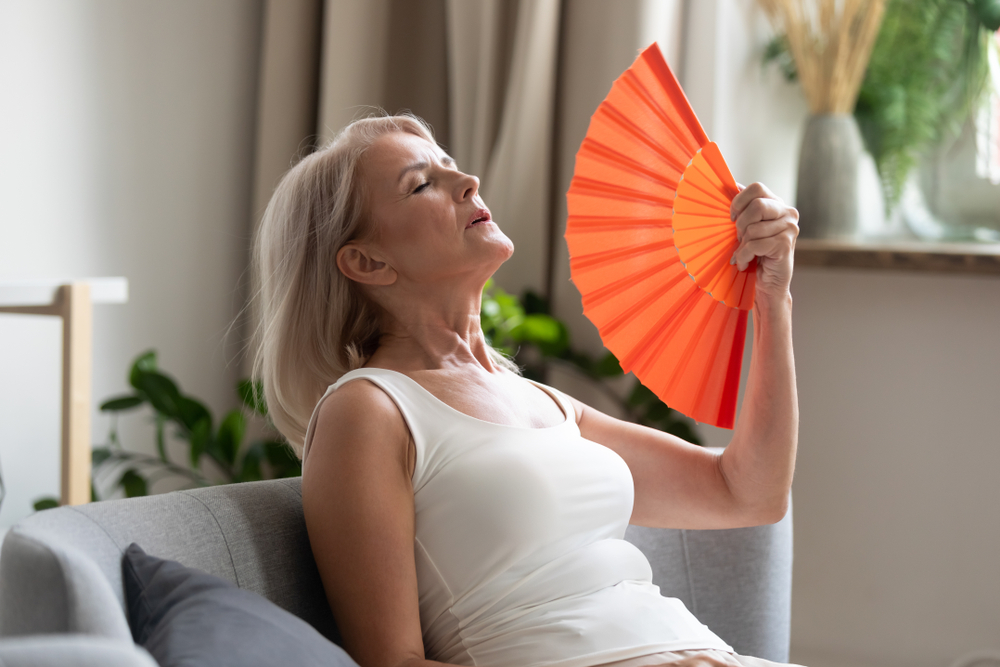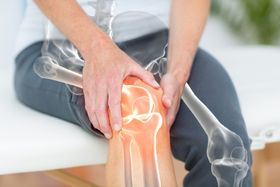5 Steps to Lose Menopausal Weight and Reduce Hot Flashes
Updated November 30, 2022.

Losing weight is hard enough, but once menopause hits, the weight doesn't seem to budge at all. Menopause adds to the woes with symptoms such as hot flashes, dry skin, mood swings, and more.
The reason for this is hormonal fluctuation, especially that of estrogen. Here are some actionable steps to help lose menopausal weight and reduce hot flashes.
» See if you can lose belly fat in 30 days
1. Let's Get Physical
Exercise is important for all ages, but it gains even more significance as you age. The average age for menopause is around 51 years, although some women may experience it in their early 40s.
As metabolism slows down, you'll gain weight faster—and exercise helps prevent age-related muscle loss and menopausal weight gain. Menopausal weight tends to settle around the abdomen. In addition to possibly looking unsightly, belly fat is the most dangerous type of fat, as it surrounds organs.
To reduce muscle loss and build muscle, strength training is important. HIIT (high-intensity interval training) workouts or SIT (sprint interval training) are effective at melting belly fat and helping you achieve a lean, toned figure, even in your 50s or 60s. Strength training is recommended twice or thrice a week, and if you're not a physically active person, no worries—it's not that difficult to get started with a healthy exercise routine to manage your body weight and reduce hot flashes.
You can start with simple exercises targeted at large muscle groups such as quads and glutes. Squats and sit-ups are great choices to incorporate into your regular exercise routine for great results.
» Find out whether sit-ups can burn belly fat
2. Focus on Nutritious Foods
A balanced and nutritious diet helps regulate your weight and reduce hot flashes during menopause. You don't have to avoid any specific food groups, even carbohydrates, but what you should do is practice portion control.
Have adequate amounts of protein and small quantities of healthy fats such as olive oil, coconut oil, and avocados. Include metabolism-boosting and fat-burning foods such as ginger, flax seeds, cinnamon, and lentils.
Avoid adding sugar, refined flour, and packaged/processed foods, and opt for fresh produce. Have plenty of fruits, vegetables, nuts, seeds, and whole grains, as well as wild-caught fish, free-range chicken, and eggs. Stick to organic foods within your budget as much as possible.
» Learn why boosting metabolism with fat-burning foods works
3. Value Your Sleep
Good sleep is vital for our health, but your sleep may be disturbed due to various menopause symptoms such as hot flashes. Interrupted sleep during menopause can influence weight gain in a negative manner.
Sleep has a powerful influence on your hormones and energy levels, so lack of sleep leaves you feeling fatigued and lethargic. A good night’s sleep will boost your energy levels and help regulate your hormones better.
Regular exercise, reducing stress, and a healthy nighttime routine will help improve your sleep. Avoid bright lights and keep your mobile phone and other electronic devices away as your bedtime approaches to get a restful night's sleep.
4. Reduce Stress Levels
We're bound to experience some stress while getting through our day and dealing with life’s challenges. However, chronic stress is detrimental to health—it influences hormones, which in turn influence weight gain and hot flashes.
Physical activities such as going for a walk, gardening, and yoga are great stress relievers. Getting a good night’s sleep is also important for keeping stress at bay. Meditate, laugh more, connect with friends, and find hobbies that make you happy to better manage your stress levels.
5. Consider Hormone Therapy
If you experience severe menopausal symptoms, especially hot flashes, you should consider hormone replacement therapy (HRT).
Your estrogen levels fall during menopause, and replacing lost estrogen has been found to provide notable relief for menopause symptoms. There are various forms of estrogen supplements, such as daily pills, patches, vaginal rings, gels, or sprays.
Combined doses of estrogen and progestin are given in combination therapy. Compared to taking just estrogen, this combination lowers the risk of endometrial cancer. Successful hormone therapy relieves hot flashes, night sweats, vaginal dryness, and itching, and may even help prevent osteoporosis-related fractures.
Bottom Line
Menopause is a natural phase in a woman’s life that can be a beautiful period if you prepare yourself for it. While some lucky women experience smooth sailing, others may have to deal with some uncomfortable symptoms, such as hot flashes, vaginal dryness, and menopausal weight.
Thankfully there are ways to deal with these symptoms or even prevent them. There are simple diet changes and short but effective workout routines that you can easily incorporate into your everyday life to fight the symptoms of menopause.




